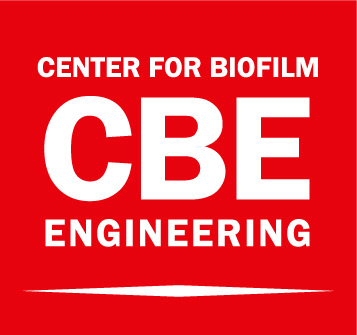The 9th Thesinge Biofilm Meeting on Biomaterial-Associated Infections
Nano-Antimicrobials: Game Changers in Biomaterial-Associated Infection?
Hosted by the rural village community of Thesinge, the Thesinge biofilm meetings have provided a unique scientific forum for a small, select group of maximally 100 people active in the field, collected for two days "away from it all" to focus formally and informally on infectious biofilms, with emphasis on biofilms on biomaterials implants, medical devices and oral surfaces.
Thesinge biofilm meetings seek to provide open, provocative discourse to stimulate thinking and creative approaches in a friendly, family-style atmosphere. There are no proceedings, only a program book, and active exchange.
What's it about?
The mere expression “biomaterial-associated infection” and the involvement of surface-adhering microorganisms (“the biofilm”) have made biomaterial surface modifications that discourage bacterial adhesion a most logical prophylactic approach. Yet, biomaterial surface modification has never become a clinically embraced solution. Reasons and excuses for why so few surface modifications have clinical applications are ample. The recalcitrance of the biofilm-mode of bacterial growth to antimicrobial penetration and intrinsic antimicrobial-resistance amongst causative pathogens have stymied effective therapeutic approaches.
Often biomaterial-associated infections are considered unique because of the involvement of a biomaterial surface, but is this really so? Most human infections are due to microorganisms in a biofilm-mode of growth, if only adhering to each other’s surface. Are biomaterial-associated infections truly distinct from other types of microbial infections? Should not we re-locate the finish line in the race for the surface in a direction away from surface modification, perhaps towards nanotechnological solutions applicable to different infection types? Nano-antimicrobials and nanocarriers loaded with conventional antibiotics are claimed in preclinical models to circulate freely through the blood, respond to the biofilm’s local micro-environment to penetrate and accumulate deeply within a biofilm, generate ROS under synergistic action with existing antibiotics to kill also antibiotic-resistant pathogens without inducing further antimicrobial-resistance, and boost the frustrated immune system around a biomaterial implant. Problem solved?
Objectives & Goals
All participants are asked to contribute intellectual and other creative input to inspiring new information, new ideas, new approaches and new expertise to participants, but to always address the meeting’s central focus question in their final slide.
Symposium Format
Informal single-track sessions with participation limited to 100 people. Emphasis is on exchange and discussion, and the program is set up such that we try to allow as many participants as possible to give a presentation. The floor is open!
Keynote Speakers:
- Linqi Shi Nankai University, Tianjin, China
- Kees Poelstra Ascension Sacred Heart Emerald Coast Hospital, Jersey City, NJ, USA
- Bas Zaat Amsterdam University Medical Center, The Netherlands
- Anna Salvati University of Groningen, Groningen, The Netherlands
We distinguish three different types of scheduled presentations and off-the-floor presentations by participants:Selected lectures: Participants selected by the organizers invited to give 30-min lectures.Mini Lectures: Participants selected by the organizers invited to give 15-min lecturesOff-the-floor: Opportunities for 5-min “hot topic” or “point-counterpoint” off-the-floor-addresses at the close of Tuesday under the stimulating leadership of David Grainger.In order to participate, please register at https://biofilm-thesinge.com/index.php/online-registration.For information and any questions, send an email to: thesinge.conference@gmail.com.**Applicants are accepted as symposium participants on a “first come, first served” basis. Please note that the registration fee, including daily transportation to and from Groningen, coffee breaks, lunch as well as the symposium BBQ, amounts to € 390 ($483.24).Admission will be definitely closed after 100 in-person participants are registered.Those attending should plan to arrive in Groningen, NL (about a 2.5-hour train ride from Amsterdam-Schiphol airport), by Monday morning, May 13, 9.00 h at the latest for meeting-arranged transport to Thesinge, outside of the city of Groningen.The Thesinge meeting ends Tuesday afternoon, May 14 at 17.30 h with pre-arranged transportation back to Groningen at 17.30 h.

